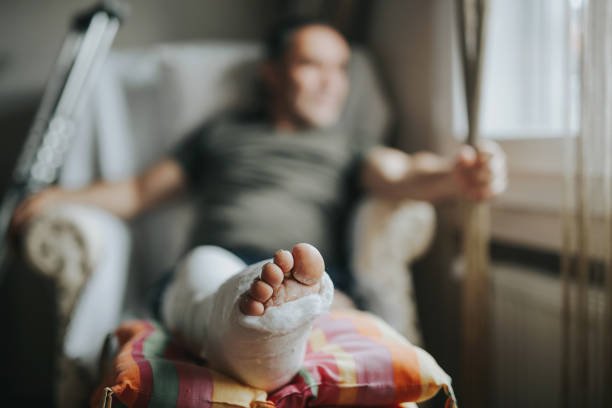
Injuries can be setbacks in our lives, disrupting our routines and challenging our physical and mental well-being. Whether you’re recovering from a sports-related injury, a workplace accident, or a simple mishap, the journey to recovery requires patience, determination, and a comprehensive approach. In this blog, we will explore the various aspects of recovering from injury, providing valuable insights and tips to help you bounce back stronger than ever.
Understand the Healing Process
Recovering from an injury starts with a solid understanding of the healing process. The human body possesses an incredible ability to repair itself, but it requires time and care. Initially, your body responds to the injury by triggering an inflammatory response, which helps remove damaged tissue and initiate the healing process. Over time, new tissue forms, replacing the old, and gradually restoring strength and function.
To support your body’s healing, it is crucial to follow your healthcare professional’s advice, which may include rest, elevation, compression, and applying ice (RICE method) in the acute phase. As the healing progresses, gentle movement and rehabilitation exercises under professional guidance can aid in restoring mobility and strength.
Invest in Physical Therapy Services
Physical therapy plays a vital role in the recovery process, particularly for moderate to severe injuries. By working closely with a skilled physical therapist, you can receive personalized treatment plans and guidance tailored to your specific injury and goals. These professionals help you regain strength, flexibility, and range of motion through targeted exercises and modalities.
Physical therapists employ a variety of techniques such as manual therapy, therapeutic exercises, and electrical stimulation to facilitate healing and improve overall function. They play a crucial role in monitoring your progress, adjusting the treatment plan accordingly, and providing the necessary support and motivation throughout your recovery journey. Fortunately, it’s easy to find a physical therapist in most larger towns and cities. For instance, you can find a physical therapist in Naperville, Oswego, or even Arlington Heights outside of Chicago. You don’t even need to go into the big city to get the help you need.
Overcome Mental Challenges
Recovering from an injury can be mentally taxing, as it often requires adjusting to physical limitations, coping with pain, and overcoming setbacks. It’s essential to address the mental aspect of the recovery process to maintain a positive outlook and stay motivated. There are some strategies to help you overcome mental challenges.
First, recognize that healing takes time and setbacks are a normal part of the process. Practice patience with yourself and focus on small victories along the way. Cultivate a positive mindset by focusing on what you can do rather than what you can’t. Visualize yourself getting stronger and regaining full function. Surround yourself with a strong support system of friends, family, and healthcare professionals who can offer encouragement and understanding during tough times. Also, consider seeking professional help if you’re struggling with anxiety, depression, or other mental health issues during your recovery. A therapist can provide valuable tools and strategies to cope with emotional challenges.
Nutrition and Hydration for Optimal Recovery
Proper nutrition and hydration play a crucial role in the recovery process. Nourishing your body with the right nutrients supports tissue repair, reduces inflammation, and enhances overall healing. Focus on consuming a well-balanced diet rich in lean proteins, whole grains, fruits, and vegetables. These provide essential vitamins, minerals, and antioxidants that aid in tissue repair. Incorporate adequate protein into your meals to support muscle recovery and rebuilding. Include sources such as lean meats, fish, eggs, legumes, and dairy products. Drink plenty of water throughout the day to keep your body hydrated. Proper hydration helps transport nutrients to cells and promotes optimal functioning. Include foods with natural anti-inflammatory properties in your diet, such as fatty fish, turmeric, ginger, and leafy green vegetables. These can help reduce inflammation and accelerate healing.
Gradual Return to Physical ActivityAs you progress in your recovery journey, it’s essential to reintroduce physical activity gradually and with caution. Rushing into intense workouts or sports too soon can risk re-injury or hinder your healing process. Before resuming any exercise routine or sport, consult with your healthcare professional or physical therapist. They can provide guidance on when it’s safe to start and recommend appropriate activities. Begin with low-impact activities such as walking or gentle stretching to gauge your body’s response. Gradually increase the intensity, duration, and complexity of your workouts over time.



